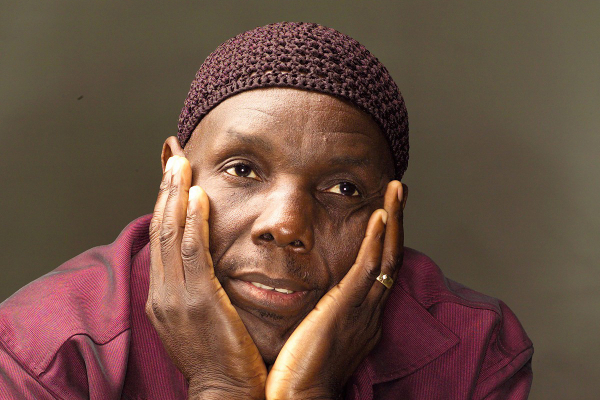
VERY few people in Zimbabwe have been able in their short lifetimes to harness the positive social forces of art as much as superstar Oliver “Tuku” Mtukudzi, who died on Wednesday at 66, did.
BY VIVID GWEDE

As far as the local arts are concerned, one would immediately remember icons such as writers Dambudzo Marechera, Doris Lessing and Yvonne Vera.
Yet, many a time, Mtukudzi did this using the native Shona language deeply tinged with his Korekore dialect, which was the main medium in which he communicated his timeless, universal and powerful musical message.
It would appear one of his most famous songs was Neria — a rendition in consolation of a widowed woman, which was adapted into a film.
Apart from his music, Tuku was keen on making a mark in causes that promote social change, hence his global ambassadorial roles on issues such as HIV and Aids as well as child marriages.
As a senior musician, one of those who cut their teeth in the colonial era, Mtukudzi comported himself well as a role model for upcoming ones, something which even appeared in recent years to intensify with the untimely loss of his beloved son, Sam.
He would later record many collaborative songs with younger musicians from a wide spectrum of genres such as Winky D, Garry Tight, Sulumani Chimbetu, and others, in which he humbly assumed the role of a father figure.
- Chamisa under fire over US$120K donation
- Mavhunga puts DeMbare into Chibuku quarterfinals
- Pension funds bet on Cabora Bassa oilfields
- Councils defy govt fire tender directive
Keep Reading
Mtukudzi showed the way by building an arts empire at Pakare Paye Arts Centre in Norton, south-west of Harare, where he has been willing to nurture and refine more talent in the music industry.
Coming from an era in which music was seen as a profession for low life people, Tuku brought through his solid personal achievements, great respectability, dignity and sense of greater purpose to the profession.
Not only that, his trademark sound drew attention to local musical traditions, instrumentation, dance and traditional values such as Ubuntu.
In songs such as Neria and Nhaka Sandi Bonde, one unmistakably gets Mtukudzi’s commitment to pushing messages that promote women upliftment and empowerment.
In the latter song, Tuku demystified cultural practices, which might be abused for personal aggrandisement, especially taking advantage of widows in the family setting.
Tuku was tactical enough to tackle complicated social issues such as in Hazvireve Rudo Handina, a song in which a regretful father tries to reach out to a child who has been raised up away from him after a divorce.
Yes, Tuku was brave enough to sing about controversial issues like his song Bvuma/Tolerance, which counsels an unnamed subject on the inevitability of getting old and the need to accept it.
Bvuma/Tolerance caused serious discomfort and friction with the political class at a time when ageing former Zimbabwean President Robert Mugabe was already facing loud questions of retirement.
As Mtukudzi does acknowledge, however, in a recent interview with StarFM, “politicians hear what they want, not what they should hear”.
In the same interview, Tuku spoke out his mind, which obviously some politicians will only grudgingly accept, if at all, to the effect that musicians can be better unifiers of a people and ambassadors for the national brand than politicians.
Reading the conflict-stricken time in which his death has come to pass in Zimbabwe and how his death has become a rallying point for people from all walks of life, he should be smiling in his eternal sleep and saying (perhaps with his trademark cough, of course) “this is what I meant”.
Despite his huge success, Mtukudzi was never one known for a life of glitz and glamour, but immense humility, as shown by the many photographs with ordinary music lovers which have suffused the Internet following his passing.
Needless to say, at the time of his death, the Ngoromera singer must have been wondering what was happening in his country with all the violence that has grabbed world headlines.
In the song Ngoromera, Tuku denounces the spirit and celebration of violence.
Indeed, what a time to die for the peacemaker and gentle musical giant, but his passing has, like a proverbial silver lining, reminded Zimbabweans, in these dark days, that there is something to celebrate in being Zimbabwean and something positive to strive for.
As such, at a time the United Nations worried about the extreme violence and human rights violations in Zimbabwe, it has found time to celebrate with the nation a life well-lived; ironically, the bad news of this death interrupting a stream of a different kind of bad news.
The elephant has fallen. For those of us who share a totem with you Samanyanga, we feel honoured, son of the soil. You have done Zimbabweans proud.











